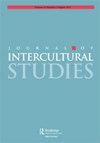遗产动员是左翼社会运动中的激进政治
IF 1
Q3 SOCIOLOGY
引用次数: 0
摘要
据说左翼运动主要投资于阶级斗争,以应对全球资本主义和极右翼日益增长的统治地位。然而,最近的左翼运动越来越多地投资于文化。本文探讨了这种投资,重点是遗产(历史建筑、文化传统、历史和叙事)的动员。通过德累斯顿的“反对pegida”运动,我表明,遗产是动员左翼激进政治的一个常常未被认识到的领域。关注左翼如何动员遗产可以表明,对文化的投资是以交叉和横向的方式发生的。本文使用了一个定性研究的例子来讨论在示威和社区工作中的遗产动员。我表明,在回应极右翼的遗产民粹主义时,遗产对左翼来说很重要。左翼的遗产动员可以被理解为对威权民粹主义的拒绝,以及对极右翼空间清洗企图的反对。此外,通过接纳难民和移民艺术家,以及以次等文化哲学为中心,这也是重新配置当地富有创造力的中产阶级的重要一步。本文章由计算机程序翻译,如有差异,请以英文原文为准。
Heritage Mobilisation as Radical Politics in a Left-Wing Social Movement
Left-wing movements are said to invest mainly in class struggle to address global capitalism and the growing dominance by the far right. Recent left-wing movements, however, increasingly invest in culture. This article explores this investment with a focus on the mobilisation of heritage (historical architecture, cultural traditions, histories, and narratives). Through the case of Dresden’s No-Pegida movement, I show that heritage is an often-unrecognised sphere of mobilising radical politics from the left. Attention to how the left mobilises heritage can indicate that investments in culture occur in intersectional and transversal ways. This article uses examples from a qualitative study of No-Pegida to discuss heritage mobilisation in demonstrations and community work. I show that heritage comes to matter for the left when responding to heritage populism from the far right. The left’s heritage mobilisation can be understood as a refusal of authoritarian populism and an opposition to the far right’s spatial cleansing attempts. It is further an important step for reconfiguring the local creative middle-class through the inclusion of refugee and migrant artists and for centring subaltern philosophies about culture.
求助全文
通过发布文献求助,成功后即可免费获取论文全文。
去求助
来源期刊

Journal of Intercultural Studies
SOCIOLOGY-
CiteScore
1.80
自引率
10.00%
发文量
67
期刊介绍:
Journal of Intercultural Studies showcases innovative scholarship about emerging cultural formations, intercultural negotiations and contemporary challenges to cultures and identities. It welcomes theoretically informed articles from diverse disciplines that contribute to the following discussions: -Reconceptualising notions of nationhood, citizenship and belonging; -Questioning theories of diaspora, transnationalism, hybridity and ‘border crossing’, and their contextualised applications; -Exploring the contemporary sociocultural formations of whiteness, ethnicity, racialization, postcolonialism and indigeneity -Examining how past and contemporary key scholars can inform current thinking on intercultural knowledge, multiculturalism, race and cultural identity. Journal of Intercultural Studies is an international, interdisciplinary journal that particularly encourages contributions from scholars in cultural studies, sociology, migration studies, literary studies, gender studies, anthropology, cultural geography, urban studies, race and ethnic studies.
 求助内容:
求助内容: 应助结果提醒方式:
应助结果提醒方式:


